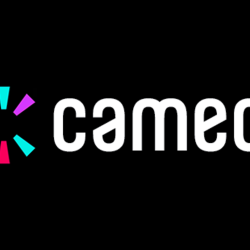The Olympia trade show counted this year an aggregate attendance of more than 30,000 people this April
London Book Fair is a must-attend event for anyone involved in the world of publishing. In 2020, the fair was cancelled due to the pandemic but returned in 2021 in a virtual format, with participants logging in from all over the world. This year the London Book Fair’s director, Gareth Rapley — having finished his first show in the role — says that the industry-facing events numbers return London Book Fair ‘to pre-covid levels, which is such a vote of confidence in the event and a testament to the special place it holds in the publishing calendar’.
The show typically includes a wide range of events, seminars, and networking opportunities for industry professionals. A couple of weeks ago MediaCat Magazine had the chance to cover the event. We met two of the panellists: Tandem Collective‘s Founder and Director, Naomi Bacon (who led the ‘Keeping up with Social Media: What’s an author best tool’ seminar), and Style Factory‘s Founder Chris Singleton (‘Chat GPT: what it is and what it means for content creators’ seminar’s speaker), who talked about publishing from a collateral point of view, riding the wave of new trends.
Tandem Collective — More than a normal digital agency

Naomi had this to say: ‘Tandem Collective was meant to just be a traditional marketing agency. When I started it, we did everything that a normal marketing agency would do. We build our homepage, we did social media advertising, … And then, 6 to 4 years ago, we started running the Readalongs, collective experiences to make reading a community-based action. We encourage bookstagrammers to freely share their thoughts based on discussion points and creative challenges, with no payment involved.’
‘This kind of experience meant to promote new and old books that our publishers entrust us throughout a different kind of campaign: Readalongs create challenges, the content that’s being created around the book are much more integrated with the narrative. Not just unboxing content, but content that’s really meaningful. We work on a collective account followers base: for instance, we collect 30 readers with different numbers of followers, it might be someone who has 200 followers, someone who has 1000 followers, or someone who has 10,000 followers, but they’re all working together as a collective to create campaigns and a new community’
‘We expanded that format to specific genre of books, audiobook, tv and film, we have now Cookalongs, Listenalongs, Watchalongs, Cleanalongs, Dreamalongs, … We work with teams of influencers to create engaging content and real-time digital activation to promote new releases, with content shared on social platforms from Instagram to TikTok. It is becoming more of a cultural hub on a word-of-mouth base — for me the most powerful marketing tool, along with seeing the community as part of the publishing process rather than the endpoint.’
‘I can’t name any other marketing agencies that have their own private community who don’t see us as marketers, they see us as part of their community. We went from two people to 35 over the course of the past two years, we also expanded globally. Two years ago, we expanded the US Canada, Australia, New Zealand, South Africa and India. And now in the past year, Italy, France, Germany, Spain.’
‘Why publishing? I worked in publishing before at PanMacMillan, always briefing marketing agencies and I felt that they didn’t understand the industry and they didn’t understand restrictions around budget and the lack of resources. There was a gap in the market and I just thought to sort it out!’
Style Factory – More than a normal e-commerce blog

Chris had this to say: ‘Style Factory is one of the web’s leading sources of impartial advice on ecommerce, digital marketing and SEO, useful for authors and publishing industry as well. Actually, my first passion was music. But basically, I’ve always had an interest in writing whether that’s music or whether it’s text, and have a strong affinity for design. So for a long time, while working as a musician, my day job was building websites for clients. Along the way, I ended up working with a lot of online tools for creating websites or digital marketing campaigns, and I started blogging about them.’
‘After noticing that my blog posts were receiving significant readership, I decided to take the plunge and create a website focused solely on blogging, rather than web design. This transition allowed me to evolve from a sort of a “digital handyman” to a writer.’
‘I tried to make Style Factory as visible as possibile. With my extensive experience writing for the web, I learned the importance of Search Engine Optimization (SEO) to improve content visibility. And after researching and learning how to work with Google’s algorithms, I put together an eBook, “Super Simple SEO”.’
‘As the husband of a book publicist, I have a strong connection to the publishing industry. My content about ChatGPT on my website caught the attention of my friendship group, which led to my invitation to speak about it at the fair.’
‘I can envision publishing universe’s people using ChatGPT or similar tools to generate starting point content for factual books. Headlines for posts, content for short posts, and press releases can all be generated using ChatGPT. Idea generation and starting point creation are where ChatGPT truly shines. As a tool for getting started with a publisher or as a part of a content marketing strategy, ChatGPT can be highly useful. ChatGPT can be used to generate marketing copy for social media and create a series of blog posts about AI in general.’
‘Using ChatGPT as an idea-stimulating tool may pose a risk of becoming overly reliant and complacent. However, if used intelligently, ChatGPT can enhance your creativity and lead to better ideas. By using ChatGPT to generate ideas to build upon or research topics that one may not have previously considered, it becomes a collaboration between two different brains and ultimately benefits the creative process.’
Featured image: London Book Fair 2023
































